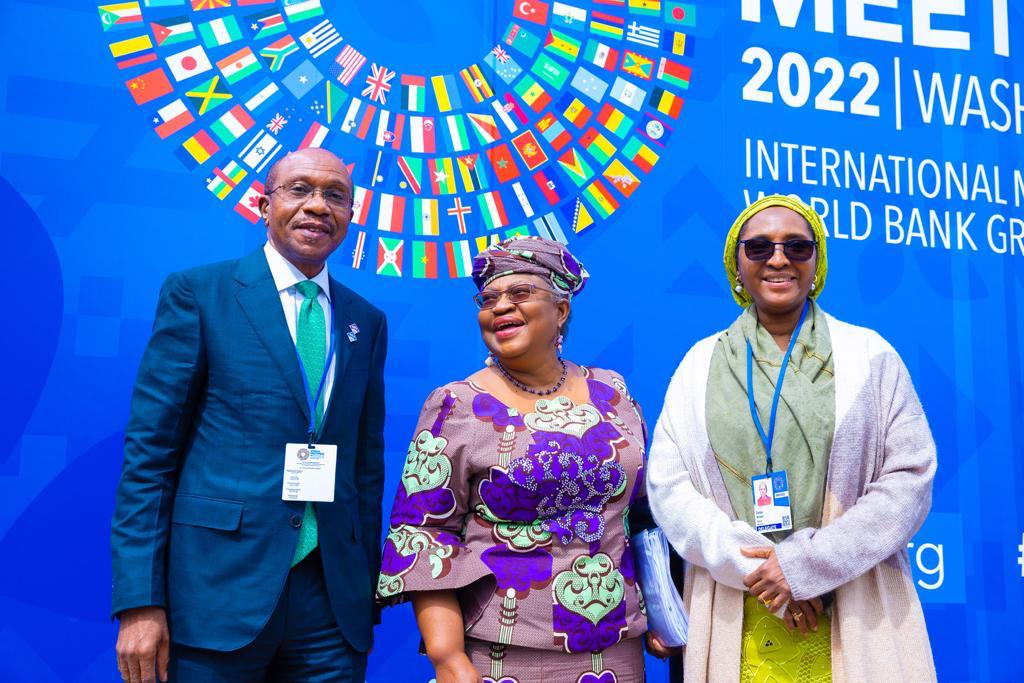Business
World Bank Tasks Nigeria, Africa on Trade Barriers

The World Bank Group has urged Nigeria and other African countries to solve the non-tariff barriers and hurdles affecting cross-border goods crossings.
According to the world banking institution, these barriers must be addressed to reap the benefits of the African Free Trade Area (AfCFTA).
In a new report titled, “Can African trade integration be a game changer?”, obtained at the weekend, the institution noted that the AfCFTA, which hopes to connect 54 countries with a combined population of 1.3 billion and GDP of $3.4trn, has several challenges to overcome.
It noted that African businesses should also see the opportunities as its research suggests that the agreement has the potential to bring significant economic and social benefits in the form of faster economic growth, higher incomes, and less poverty.
The World Bank also stated that in addition to ministries of trade involved in the negotiations, other government agencies in each country should also become familiar with AfCFTA and learn the key role they may be called to play in its implementation on the ground.
It added that tackling non-tariff barriers and hurdles affecting cross-border crossings of goods was paramount, as well as reducing barriers to trade in services because each country has its own regulations covering industries such as logistics and transport, financial services, tourism, and communications.
“The agreement faces several challenges. However. the African private sector, including SMEs that could benefit from AfCFTA, should become more familiar with the different chapters of the treaty and learn how the topics addressed – such as the liberalisation of trade in services – can be leveraged to boost their businesses.
“So, signing the agreement is just the first step. It will take much more to unlock AfCFTA’s potential gains in trade, investment, and jobs.
“African nations will need to support the AfCFTA Permanent Secretariat, based in Accra, Ghana, which is charged with administering the agreement.
“Domestic laws and regulations will need to be harmonised with the agreement’s protocols on investment, intellectual property rights, competition and digital trade”, the report stated.
To reap the gains of the agreement, the World Bank emphasised that stakeholders must encourage progressive liberalisation of cross-border trade and investment policies in line with AfCFTA protocols to establish the groundwork for regional value chains in Africa.
It also advised member states to strengthen cross-border trade and investment in services by facilitating trade in digital services, removing FDI restrictions, and liberalising the movement of workers.
“It is now up to the member states and champions within to lead working together with the private sector and civil society, to ensure that the promise of the AfCFTA can finally be a game changer for Africa and reap its many benefits for its people,” the report read further.
By: Corlins Walter
Business
Agency Gives Insight Into Its Inspection, Monitoring Operations

Business
BVN Enrolments Rise 6% To 67.8m In 2025 — NIBSS

The Nigeria Inter-Bank Settlement System (NIBSS) has said that Bank Verification Number (BVN) enrolments rose by 6.8 per cent year-on-year to 67.8 million as at December 2025, up from 63.5 million recorded in the corresponding period of 2024.
In a statement published on its website, NIBSS attributed the growth to stronger policy enforcement by the Central Bank of Nigeria (CBN) and the expansion of diaspora enrolment initiatives.
NIBSS noted that the expansion reinforces the BVN system’s central role in Nigeria’s financial inclusion drive and digital identity framework.
Another major driver, the statement said, was the rollout of the Non-Resident Bank Verification Number (NRBVN) initiative, which allows Nigerians in the diaspora to obtain a BVN remotely without physical presence in the country.
A five-year analysis by NIBSS showed consistent growth in BVN enrolments, rising from 51.9 million in 2021 to 56.0 million in 2022, 60.1 million in 2023, 63.5 million in 2024 and 67.8 million by December 2025. The steady increase reflects stronger compliance with biometric identity requirements and improved coverage of the national banking identity system.
However, NIBSS noted that BVN enrolments still lag the total number of active bank accounts, which exceeded 320 million as of March 2025.
The gap, it explained, is largely due to multiple bank accounts linked to single BVNs, as well as customers yet to complete enrolment, despite the progress recorded.
Business
AFAN Unveils Plans To Boost Food Production In 2026
-

 News2 days ago
News2 days agoNigeria Has Woken Up From Slumber Under Tinubu – Shettima
-

 News2 days ago
News2 days agoOji Clears Air On Appointment Of 15 Special Advisers By Fubara
-

 Featured2 days ago
Featured2 days agoRivers: Impeachment Moves Against Fubara, Deputy Hits Rock …As CJ Declines Setting Up Panel
-
News2 days ago
Nigeria To Begin Exporting Urea In 2028 -NMDPRA
-
City Crime2 days ago
Health Commissioner Extols Fubara’s Commitment To Community Healthcare Delivery
-
Niger Delta2 days ago
Tinubu, Leading Nigeria To Sustainable Future – Okowa … Lauds Oborevwori Over Uromi Junction Flyover Construction
-

 News2 days ago
News2 days agoEFCC Indicts Banks, Fintechs In N162bn Scams
-
News2 days ago
Situation Room Decries Senate’s Delay On Electoral Act, Demands Immediate Action

